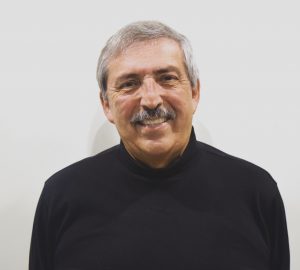Alberto Ochoa: Fighting for Education Equality

After dedicating years of his life to advocating for better education in underserved communities, Alberto Ochoa professor emeritus in the College of Education at San Diego State University, looks forward to continuing his work for many more years.
Based on his research and a career of over 40 years, Ochoa believes there is much to be done still in terms of equality for education in low-income communities, students who are classified as “English learners,” and their parents.
“My life has been guided by the pulse of the civil rights movement and the promise of the civil rights, it’s unfulfilled so we have a responsibility to define what we mean (by) equal opportunity,” Ochoa said. “Is sameness meaning we give everybody the same thing? Or is opportunity, providing opportunities that match the needs of the person?”
Ochoa has served as chair for several departments, directed programs and has worked with over 60 school districts in California and Internationally, and his passion for education has been rooted in finding solutions to the equity problems in education.
Despite the years that have passed since famous court decisions and the civil rights movement, Ochoa believes there are still schools that are not providing services to children whose native language is not English.
“To some degree we are still struggling with that same issue, we have sort of gone back to the climate of the ‘70s where the negligence of our education system is not providing services to what is now called emerging bilinguals or English learners,” Ochoa said.
Ochoa lived that struggle as a young immigrant from Mexico who had to learn how to live in a new culture and country at the age of seven.
His father, a printer, moved the family of six to Lincoln Heights in Los Angeles and Ochoa and his family had to adapt to a new way of living and a new language.
He recalls that going to elementary school at a time when there was no “English as a Second Language” classification, so he began to practice his own strategies by using the Spanish he knew to pick up base skills in the classroom.
At the time, Ochoa and his family did not speak English so it was a culture shock to live in a country where it was difficult to communicate with others, however, he knew he could count on the support of his family.
“It was a journey, but being in a large family, I never felt isolated,” Ochoa said.
He went on to pursue a bachelor’s degree from California State University, Los Angeles in sociology and Latin American studies then earned his master’s in special education from the University of Southern California.
Ochoa found his passion for trying to find solutions to the equity problems in education during his time as a staff member at UC Santa Cruz where he helped train 60 Latino teachers to become biliteracy teachers as a result of community members encouraging the university that there was a need for bilingual teachers.
He then earned his doctorate degree from the University of Massachusetts in non-formal and international education, and although he had the opportunity to work internationally he decided the work was at home.
“The work was here,” Ochoa said. “I needed to come back to my community.”
He began working at SDSU in 1975, and since then he focused his work on addressing the educational arena in the form of teacher training, he said.
For Ochoa, it will take proper teacher training and teachers who are culturally competent, and parents becoming more involved with the education system so they can has staff, programs and curriculum that matches the needs of the students in those communities.
“We tend to delegate, la confianza (the trust), we have a lot of faith (that) the educational system will do goodness,” Ochoa said on parents in communities that tend to not be as involved in the school system.
In 1987, Ochoa worked to encourage parents of Sherman Elementary School, which at the time was ranked academically near the bottom of the elementary schools in the San Diego Unified School District.
Through the nonprofit organization, Parent Institute for Quality Education, Ochoa, as board chair of this organization, identified that parents wanted interactive trainings at schools to understand the education system.
He continues that work through his research and involvement and said that the consciousness needs to be raised that the school belong to parents and they need to be provided with the knowledge and understanding of what needs to change.
Ochoa added that the greatest problem is how to shift the way that the community looks and education and having them acknowledged that the schools belong to the community, but he plans on continuing his work with parents and training teachers for many years to come.






